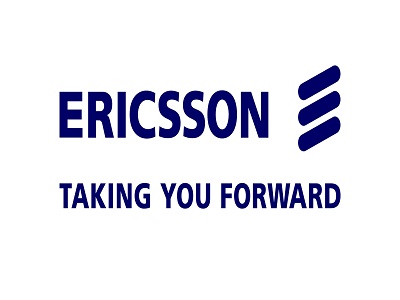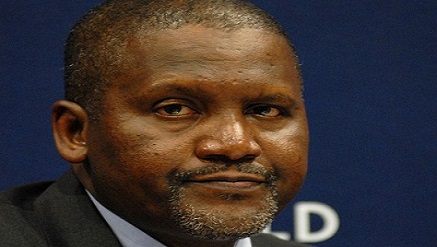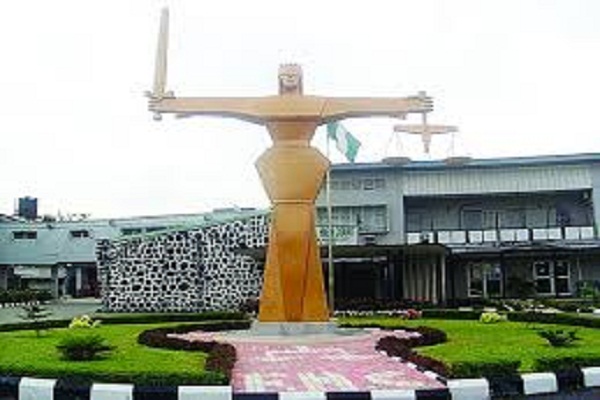News
Aero Delivers New Aircraft, Commences Third Party Maintenance

Aero as part of its fleet renewal programme is taking delivery of Boeing 737-400 and -700, including the Dash 8-Q400 new generation aircraft commencing from next month.
The new generation aircrafts are expected to assist the airline in its expansion programme and add new destinations and offer greater customer service and comfort.
The new generation B737 aircraft is equipped with the latest navigation equipment with lower fuel burn and increased reliability making the aircraft more efficient, environmentally friendly and easier to maintain.
Aero, a high efficiency carrier is Nigeria’s oldest aviation company (52 years), and has been operating scheduled services since 2000 with huge success. It has consistently operated with 80% load factors over the last two years, and a completion factor of 98% for all its flights.
Captain Akinlawon George, managing director of Aero said: “We are currently focusing on a niche market of small medium sized oil and gas companies, not only the majors. We believe these companies have very great prospects in the future, and we can partner with them to grow as well.
“Aero adhere strictly to the maintenance schedule of our aircraft as prescribed by the manufacturers and the Nigerian Civil Aviation Authority {NCAA}. We are audited at least four times a year by the NCAA and three of our top customers who engage aviation inspectors from Europe and the US.
“We are venturing into emergency medical evacuation, search and rescue as we expand our rotary wing fleet size”.
He added that the airline is working to expand its market domestically and regionally in the near future and guaranteed customers its commitment to the highest safety standards.
Meanwhile, following the success of Aero’s aircraft maintenance, the airline is about to commence third party C-Checks.
The Nigerian Civil Aviation Authority (NCAA) in 2011 approved Aero as an Aircraft Maintenance Organization (AMO) for: “A” and “B” checks on Boeing Airplanes, various levels of checks on other Airplanes, Boroscope, Wheels and Brakes (Assembly, Overhaul, Replacement, NDT), Air Frames (NDT), and Avionics and Battery (Cap Check, Overhaul).
“C” checks on Boeing by the airline will commence soon.
With the certification of Aero as an Aircraft Maintenance Organization (AMO), Aero intends to expand existing hangar to enable it meet the requirements of aircraft maintenance work including third party work, service the West African sub-region market for third party maintenance work, provide employment opportunities, training and staff enhancement programmes for employees.
Capt. George said: “A lot has been said about carrying out “C” and “D” checks abroad. The expected savings currently anticipated from doing the checks in Nigeria are quite little due to the current taxation policy.
“Nigeria has relatively high import duties on aircraft parts. Airlines typically fly their aircraft to, say, Turkey to have them serviced and relevant parts replaced. Once that aircraft flies back to Nigeria, the new parts are not subject to import duties as they are already installed on the plane. This puts any Nigerian maintenance provider in a big disadvantage against foreign players. A Nigerian maintenance provider would need to import all spares used in maintenance and thus incur the import duties that those maintaining their aircraft abroad avoid completely.
“The resolution to this issue can be either that spares imported as installed on a plane are subject to import duty, or that Nigerian maintenance businesses would get import duty relief. If Nigeria ever wants to allow for aircraft maintenance business to develop in Nigeria, it needs to create a level playing field between domestic and foreign operations. Right now, Nigeria is subsidizing maintenance businesses abroad and as a result is not allowing the same business develop in Nigeria.”
News
Aliko Dangote Signs out @ Dangote Sugar Refinery as Chairman

In a major leadership transition, Dangote Sugar Refinery Plc (DSR) has announced the retirement of Aliko Dangote, its founder and chairman, from the Board, effective June 16, 2025.

Aliko Dangote
The announcement was made in a regulatory filing with the Nigerian Exchange Ltd on June 11, highlighting the company’s commitment to sound corporate governance and structured succession planning.
In a statement signed by Mrs. Temitope Hassan (FCIS), company secretary and legal adviser, the Board praised Dangote’s extraordinary leadership and lasting contributions to the company.
“Alhaji Aliko Dangote is one of the founding Directors of the Company and has served with exceptional leadership, integrity, and vision since 2005,” the statement read.
“Under his stewardship, Dangote Sugar Refinery transformed significantly, navigated industry changes, consistently delivered value to shareholders, and upheld strong governance principles.”
Widely regarded as Africa’s most influential industrialist, Dangote led DSR’s evolution into a dominant player in Nigeria’s sugar value chain.
His strategic initiatives, particularly the Backward Integration Projects (BIPs) across Adamawa, Taraba, and Nasarawa States, advanced the company’s self-sufficiency goals and aligned with the federal government’s national sugar master plan.
While stepping down from DSR, Dangote will continue as President of Dangote Industries Limited.
His legacy at DSR is marked by industrial innovation, strategic foresight, and sustained operational excellence.
To ensure a seamless transition, the Board has appointed Mr. Arnold Ekpe, a seasoned independent non-executive director, as the new chairman, effective June 16.
Ekpe is renowned for his tenure as Group CEO of Ecobank Transnational Incorporated, where he championed pan-African financial inclusion and institutional growth.
His extensive experience in banking and corporate governance is expected to strengthen DSR’s next phase of development.
The leadership change signals continuity of vision, with DSR reaffirming its focus on operational efficiency and long-term value creation in a dynamic market.
For shareholders and industry observers, Dangote’s exit from the Board marks the end of a transformational era—one defined by bold ambition and strategic execution—while opening a new chapter under Ekpe’s leadership.
News
Report Reveals New Malware Posing as an AI Assistant Steals User Data

Kaspersky Global Research & Analysis Team researchers have discovered a new malicious campaign which is distributing a Trojan through a fake DeepSeek-R1 Large Language Model (LLM) app for PCs.

The previously unknown malware is delivered via a phishing site pretending to be the official DeepSeek homepage that is promoted via Google Ads.
The goal of the attacks is to install BrowserVenom, a malware that configures web browsers on the victim’s device to channel web traffic through the attackers servers, thus allowing to collect user data – credentials and other sensitive information. Multiple infections have been detected in Brazil, Cuba, Mexico, India, Nepal, South Africa and Egypt.
DeepSeek-R1 is one of the most popular LLMs right now, and Kaspersky has previously reported attacks with malware mimicking it to attract victims. DeepSeek can also be run offline on PCs using tools like Ollama or LM Studio, and attackers used this in their campaign.
Users were directed to a phishing site mimicking the address of the original DeepSeek platform via Google Ads, with the link showing up in the ad when a user searched for “deepseek r1”.
Once the user reached the fake DeepSeek site, a check was performed to identify the victim’s operating system. If it was Windows, the user was presented with a button to download the tools for working with the LLM offline. Other operating systems were not targeted at the time of research.
After clicking on the button and passing the CAPTCHA test, a malicious installer file was downloaded and the user was presented with options to download and install Ollama or LM Studio.
If either option was chosen, along with legitimate Ollama or LM Studio installers, malware got installed in the system bypassing Windows Defender’s protection with a special algorithm.
This procedure also required administrator privileges for the user profile on Windows; if the user profile on Windows did not have these privileges, the infection would not take place.
After the malware was installed, it configured all web browsers in the system to forcefully use a proxy controlled by the attackers, enabling them to spy on sensitive browsing data and monitor the victim’s browsing activity.
Because of its enforcing nature and malicious intent, Kaspersky researchers have dubbed this malware BrowserVenom.
“While running large language models offline offers privacy benefits and reduces reliance on cloud services, it can also come with substantial risks if proper precautions aren’t taken.
Cybercriminals are increasingly exploiting the popularity of open-source AI tools by distributing malicious packages and fake installers that can covertly install keyloggers, cryptominers, or infostealers.
These fake tools compromise a user’s sensitive data and pose a threat, particularly when users have downloaded them from unverified sources,” comments Lisandro Ubiedo, Security Researcher with Kaspersky’s Global Research & Analysis Team.
News
Court Declares Bank’s Withholding of Retirement Benefits Unlawful

National Industrial Court in Lagos has ruled that a deposit money bank must pay over N162 million in outstanding retirement benefits to a group of its former employees.

The judgment, delivered by Justice R.H. Gwandu, criticized the bank’s attempt to withhold entitlements from staff employed through third-party arrangements.
The claimants, represented by Chief Mike Ozekhome, SAN, argued that the bank violated labor laws by refusing to honor their retirement benefits. They sought declarations that the bank’s actions were unlawful and requested immediate payment of their dues.
Justice Gwandu ruled in favor of the employees, stating that the use of third-party employment to evade obligations was unacceptable.
The court acknowledged their long service and dismissed the bank’s argument that they did not meet the required 15 years of uninterrupted service.
Notably, the court upheld the rights of the 10th claimant, who continued working with the bank after its merger with Manny Bank and another commercial institution.
This landmark ruling reinforces workers’ rights and establishes that organizations cannot use outsourcing arrangements to deny employees their legitimate benefits.

 News2 days ago
News2 days agoCDCFIB Warns against Recruitment Racketeers

 Telecom2 days ago
Telecom2 days agoMeta, FMCIDE Unveil AI Accelerator to Drive Innovation in Nigeria

 News2 days ago
News2 days agoFG May Forfeits $4m from World Bank Loan over Audit Flop

 Telecom2 days ago
Telecom2 days agoNigeria Leads the Charge in Green Innovation @MTN’s Africa PachiPanda Challenge

 Broadcasting2 days ago
Broadcasting2 days agoAfia TV and Radio Stamps Footprints in Lagos

 Telecom1 day ago
Telecom1 day agongCERT Issues High Alert to Nigerians Using Android Phones

 E-Financial2 days ago
E-Financial2 days agoNDIC Begins Final Settlements to Creditors of Liquidated Premier Bank

 News2 days ago
News2 days agoConcerned Nigerians Ask EFCC to Release Abiodun, CBEX Promoter




























